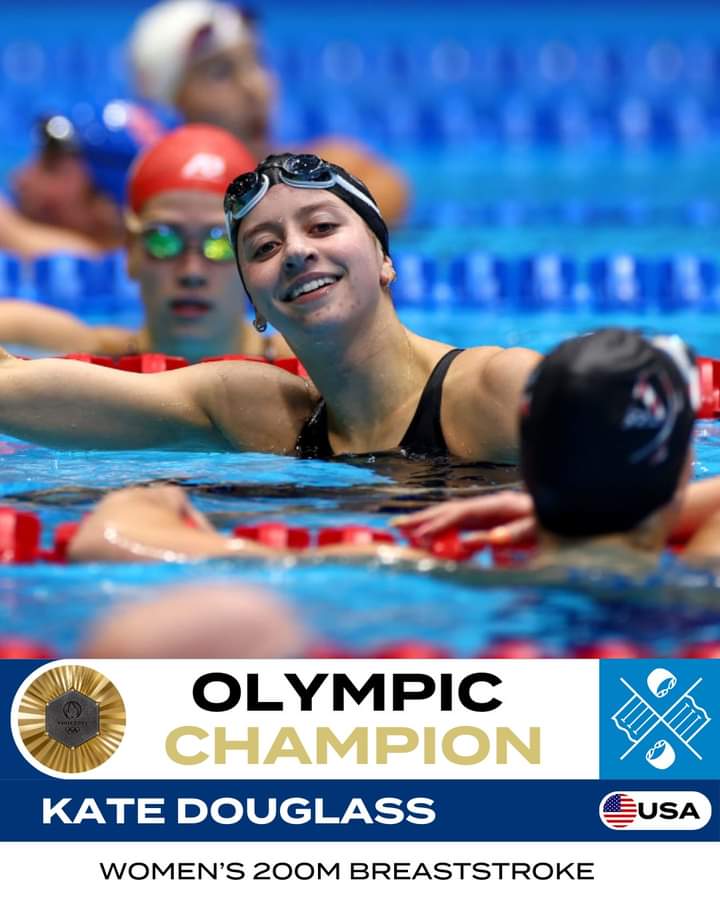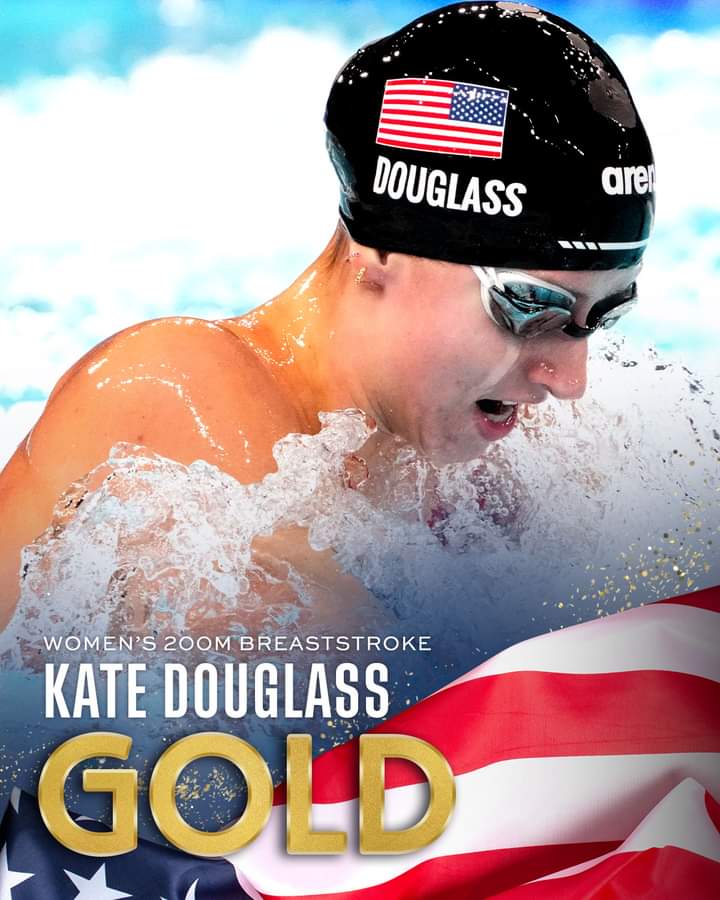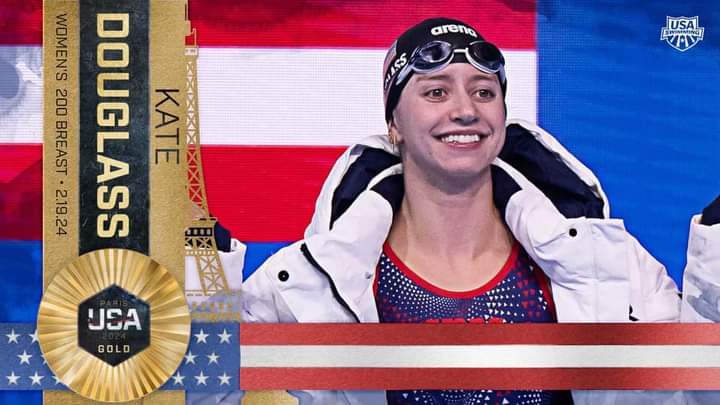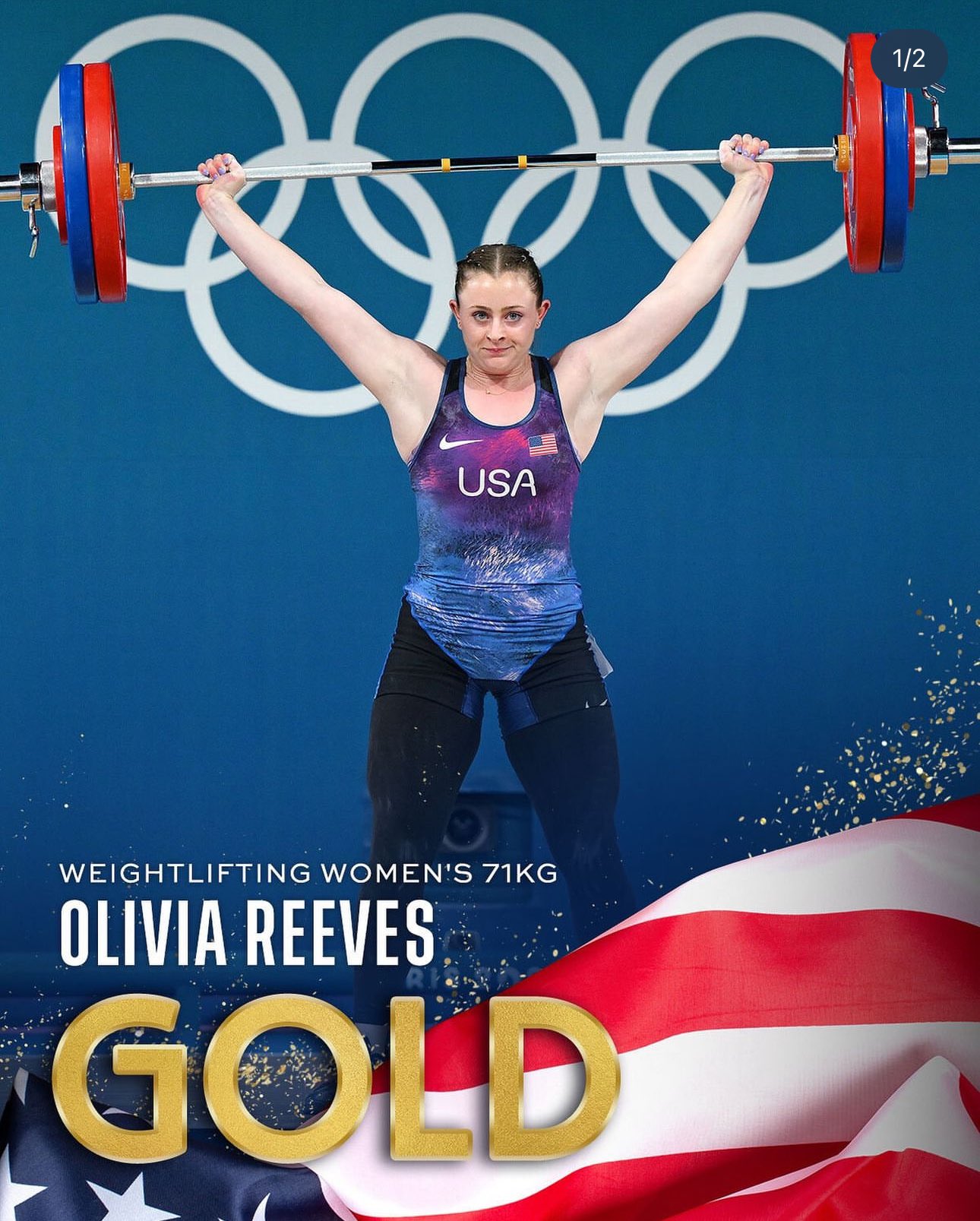
Kate Douglass, a USA swimmer and statistics student, went into the women’s 200-meter breaststroke final on Thursday, August 1, with that race plan in mind.
Even if her university lecturers did not give Douglass much credit for the flawless execution of the strategy, she still received a gold medal from the 2024 Olympic Games in Paris. Douglass, who also assisted Team USA in winning silver in the 4x100m freestyle relay earlier in the week, stated, “To get an individual Olympic gold is such an amazing feeling and to already have two medals from this meet, that’s more than I ever could have imagined.
Table of Contents
“Kate Douglass attributes some of her Olympic performance to her education at the University of Virginia, even if she is relying more on swimming coaches than on academics in Paris 2024. The two-time Olympian is currently pursuing a master’s degree in statistics after earning a bachelor’s degree in the subject in 2023.
Douglass discovered during these studies that learning statistics could aid with her swimming. Once I came at UVA, I noticed that swimming was using it more frequently. Prior to this, I wasn’t really aware of that, but now I see how important it is to swimming,” Douglass remarked.
Although it’s interesting to see the comparison between the two, swimming is most definitely not the reason I became interested in statistics. I think that has at least helped me cut a few tenths of a second off my times. I’ve definitely been able to leverage my love for statistics and use that to help me succeed in the water and apply statistics to swimming.
Kate Douglass uses statistics in sport, from the classroom to the Olympic swimming pool.

Kate Douglass uses statistics in sport, from the classroom to the Olympic swimming pool. Under the direction of mathematics and data science professor Ken Ono, Douglass co-authored an academic paper with other students that describes how data analytics might benefit the pool. Newton’s Laws of Motion, mathematical formulas, and Olympic swimmers abound in “Swimming in Data.”
These athletes include Johnny Weissmuller, who won three gold medals at the 1924 Olympic Games in Paris, and Caeleb Dressel, who increased his record to eight gold medals in Paris a century later, with more races to come.The manuscript’s reference to Paris is not coincidental.
Kate Douglass has improved her own breaststroke times in anticipation of Paris 2024 by utilizing its findings. The research uses her and Rio 2016 medalist Lilly King as case examples. It depicts their stroke efficiency on a chart and compares their streamlining places. To determine the acceleration rates for each kick, splash, and spin, the athletes wore sensor bands and inertial measurement units, which are accelerometers worn around the waist.
Any technical problems in the swimming techniques might subsequently be found via computerized analysis.It involves several factors, and there are various tools and methods we may employ to observe certain acceleration at distinct stroke locations and determine how to optimize it, according to Douglass.
“I definitely have a mathematical mind. That’s what I pay attention to and enjoy looking at following my races. Although Douglass’s studies and her own efforts to improve her split times in the pool have heavily relied on contemporary technology, the swimmer also employs certain low-tech measurement techniques.
She keeps track of her strokes.That’s simply something I do on a daily basis in practice, and I kind of unconsciously started doing it in races,” Douglass said.”I discovered that I was swimming the race with a set stroke count each time I started concentrating on the 200 breaststroke.
The metrics and tactics underlying Douglass’s 2024 Paris races

Occasionally, if I deviated from that stroke count, the race would not proceed as expected.The metrics and tactics underlying Kate Douglass 2024 Paris races When Douglass competed in the 200-meter breaststroke final in the Paris La Defense Arena, she had a full house of cheering fans, including about fifty of her friends and relatives.
This was her chance to put her university education to the test in the Olympic pool, and it was going to be a difficult test.In the lanes beside Douglass were the reigning world champion Tes Schouten of the Netherlands and the reigning Olympic champion Tatjana Smith (formerly Schoenmaker).
The experienced South African swimmer was hoping to retire by completing a rare feat that hasn’t been done since Atlanta 1996: a breaststroke double. It was her final race at the Olympics. Smith got off to a fast start and led for the first 50 meters, but Douglass overtook him on the following lap and held the lead all the way to the wall with a time of 2:19.24. all the while keeping a strict count of her strokes.
“I felt like I had a specific stroke count that I stuck to the last few times that I went a 2.19, so I knew going into that race that if I stuck to that plan, I’d be able to go 2.19 again,” Douglass remarked. Douglass beat her own American record of 2:19.30 in the Paris 2024 final. Smith finished with a time of 2:19.60, 0.36 seconds behind, and Schouten in third place with 2:21.05.
Following the event, Smith remarked, “It’s amazing the times that we saw.” “She challenged me to become a better version of myself, and I am so grateful for that.”A gleaming As Douglass, with her hand covering her mouth, struggled to accept that she was now an Olympic winner, Smith was one of the first to lean over the lane divider and hug her.
Kate Douglass’ happiness was evident on her face and didn’t require any kind of scientific apparatus to quantify. Douglass remarked, “A few months ago, I wouldn’t have believed you if you told me I would win a gold medal at the Olympics.” “This is just a bizarre moment.”

